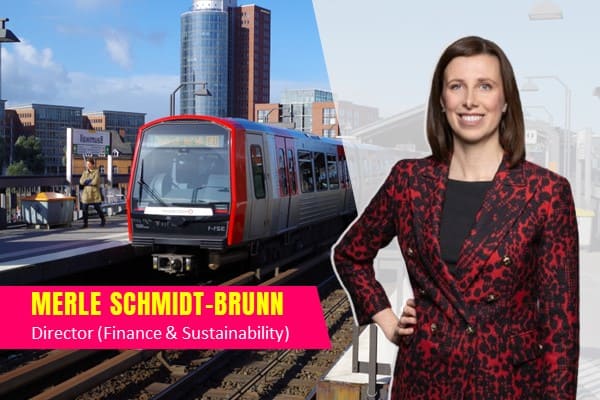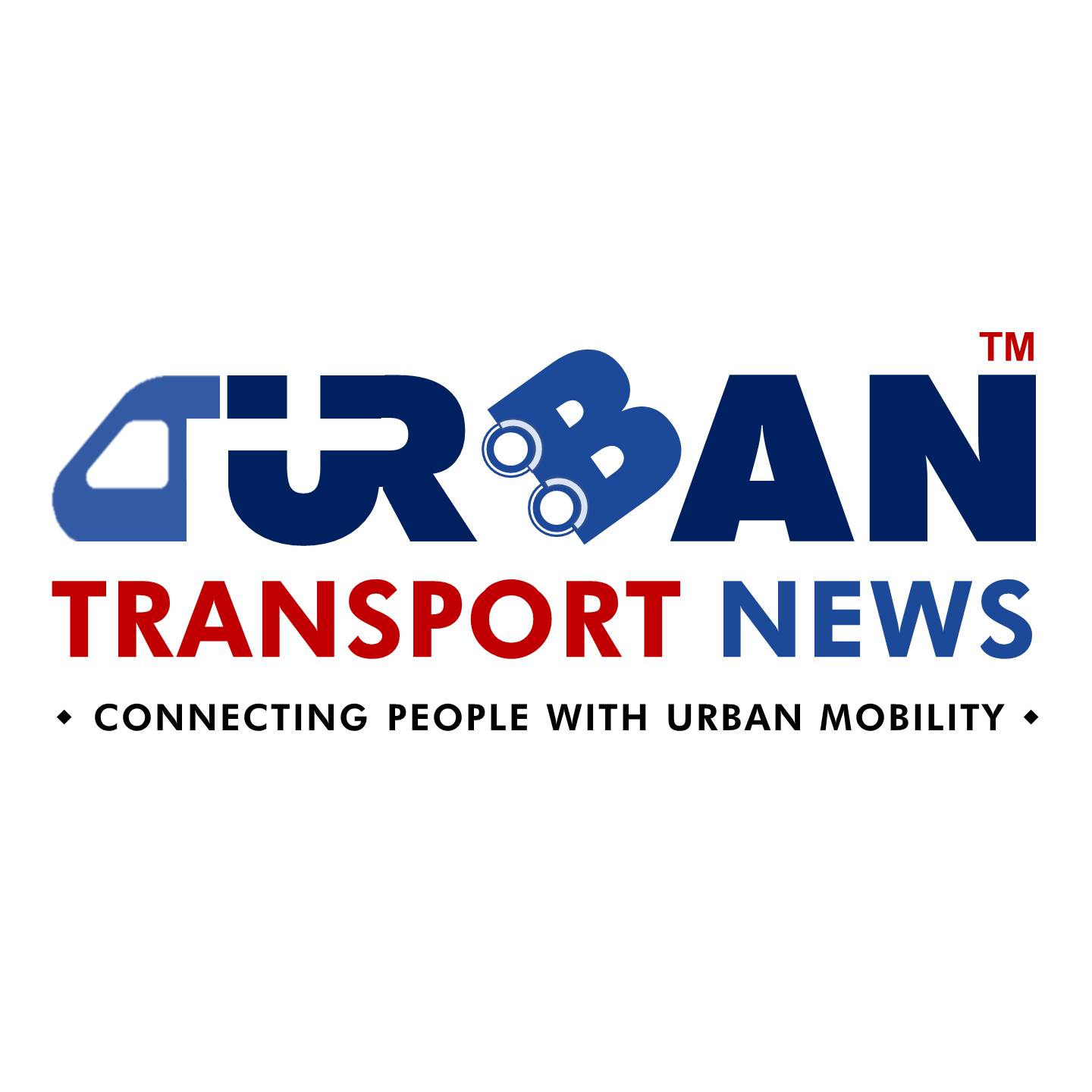 North-South Commuter Railway (NSCR): Modern Train Network Connecting Luzon Island
North-South Commuter Railway (NSCR): Modern Train Network Connecting Luzon Island India launched Bharat Taxi Service as First Cooperative-Owned Digital Mobility Platform
India launched Bharat Taxi Service as First Cooperative-Owned Digital Mobility Platform India places World’s First Live Commercial Order for Hyperloop-Based Cargo Logistics
India places World’s First Live Commercial Order for Hyperloop-Based Cargo Logistics How Weigh-in-Motion Systems Are Revolutionizing Freight Safety
How Weigh-in-Motion Systems Are Revolutionizing Freight Safety Women Powering India’s Electric Mobility Revolution
Women Powering India’s Electric Mobility Revolution Rail Chamber Launched to Strengthen India’s Global Railway Leadership
Rail Chamber Launched to Strengthen India’s Global Railway Leadership Wage and Hour Enforcement Under the Massachusetts Wage Act and Connecticut Labor Standards
Wage and Hour Enforcement Under the Massachusetts Wage Act and Connecticut Labor Standards MRT‑7: Manila’s Northern Metro Lifeline on the Horizon
MRT‑7: Manila’s Northern Metro Lifeline on the Horizon Delhi unveils ambitious Urban Mobility Vision: Luxury Metro Coaches, New Tunnels and Pod Taxi
Delhi unveils ambitious Urban Mobility Vision: Luxury Metro Coaches, New Tunnels and Pod Taxi Qatar approves Saudi Rail Link Agreement, Accelerating Gulf Railway Vision 2030
Qatar approves Saudi Rail Link Agreement, Accelerating Gulf Railway Vision 2030
Interview with Merle Schmidt-Brunn, Director, Finance & Sustainability, Hamburger Hochbahn AG

Merle Schmidt-Brunn has been a member of the Executive Board of Hamburger Hochbahn AG since April 1, 2023, overseeing Finance and Sustainability. Prior to joining HOCHBAHN, she served as the Senior Director of Financial Analytics at Hapag-Lloyd. A Hamburg native, Merle completed her Abitur at the Gymnasium Oldenfelde and pursued her studies in financial and business mathematics at the Technical University of Braunschweig, the University of British Columbia in Vancouver, Canada, and the Universidad de la Laguna in Spain.
Following her academic pursuits, Merle began her professional journey at Generali Lebensversicherung AG, later transitioning to management consultancy at Roland Berger before joining Hapag-Lloyd in 2015. In her current role at HOCHBAHN, she not only manages Finance and Sustainability but also oversees critical areas such as purchasing, information management (IT), as well as legal and real estate. Merle Schmidt-Brunn's diverse background and expertise contribute to her dynamic leadership within the Executive Board, steering HOCHBAHN towards financial success and sustainable practices.
What does being a pioneer in urban mobility mean to HOCHBAHN, and how does the company define proactive action in this context?
At HOCHBAHN, being a pioneer in urban mobility is about being proactive – acting with foresight and making provision for future generations. That is why we are driving progress towards mobility transition in Hamburg. As a blueprint for the mobility transition in urban areas worldwide. The need for action has never been more urgent.
How does HOCHBAHN view innovation as the key to climate-friendly mobility and livable cities?
We firmly believe that innovation is the key to climate friendly mobility and livable cities. As a signatory of the UN Global Compact, we organize our actions in compliance with the Sustainable Development Goals.
Can you elaborate on the transformation paths defined by the City of Hamburg and the specific targets set for reducing CO2 emissions in the transportation sector by 2030?
Our goals are twofold: to transform the climate-friendly future mobility in Hamburg and to become a climate-neutral company by 2030. To achieve those goals the City of Hamburg (net-zero by 2045) has defined transformation paths. From 2021 levels, we have to reduce 0.9 million t CO2e in the transportation sector by 2030.
What is the "Hamburg-Takt" strategy, and how does HOCHBAHN believe it will contribute to reducing private car use?
Our strategy for mobility transition is called “Hamburg-Takt” (“Takt” means service-frequency). We are convinced that flexibility is key for reducing private car use. Shared mobility without a timetable but on-demand. Everyone in Hamburg will have access to integrated public transport within five minutes by 2030. Therefore, we are enhancing our services: consequently expanding the conventional local public transport as the backbone of urban mobility, building an integrated autonomous on-demand service and integrating conventional and new forms of mobility into our platform called “hvv switch”. Only by aligning public transport services to the needs of all people we will be able to turn the mobility transition into reality.
What are the key aspects of HOCHBAHN's strategy to achieve sustainable mobility for all by electrifying the bus system by 2030?
Sustainable mobility for all: efficient, socially fair, secure, comfortable, intuitive, consistent and reliable. To this end, we are electrifying our bus system by 2030. Here, our responsibility does not end in Hamburg, which is why sustainability criteria have been implemented in our tenders since 2019.
How is HOCHBAHN upgrading its existing infrastructure with smart innovations to act efficiently and minimize resource use?
We are also upgrading our existing infrastructure with smart innovations, which will help us to act efficiently and minimize the use of resources like the automation of existing metro-lines (capacity +50%). In building the new fully automated metro-line U5 we are showing our pioneering sustainable spirit. With our CO2e-reduction strategy for one of the largest urban transport infrastructure projects in Europe, we are demonstrating how to realize major projects in a more climate-friendly way (-70% CO2e).
What role does the industry partner HOLON play in HOCHBAHN's plans to bring autonomous and zero-emission on-demand shuttles to the streets of Hamburg by 2024?
With our industry partner HOLON we will bring autonomous and zero-emission on-demand shuttles to the streets of Hamburg as early as 2024. They will play an important role in convincing people to reduce private car use. For financing our mobility transition, we are also convincing our investors in the green capital market – HOCHBAHN is rated as Dark Green.
How is HOCHBAHN positioning itself in the green capital market, and what does the "Dark Green" rating signify? What is HOCHBAHN's perspective on the proposition that public transport journeys in world cities must double in this decade to reduce global emissions?
The proposition of public transport journeys in world cities must double in this decade to bring global emissions down, in line with keeping the temperature rise to 1.5°C. Our transition strategy can be a blueprint for cities worldwide. In 2025 & 2027, Hamburg will host the most important conference for sustainable urban mobility.






